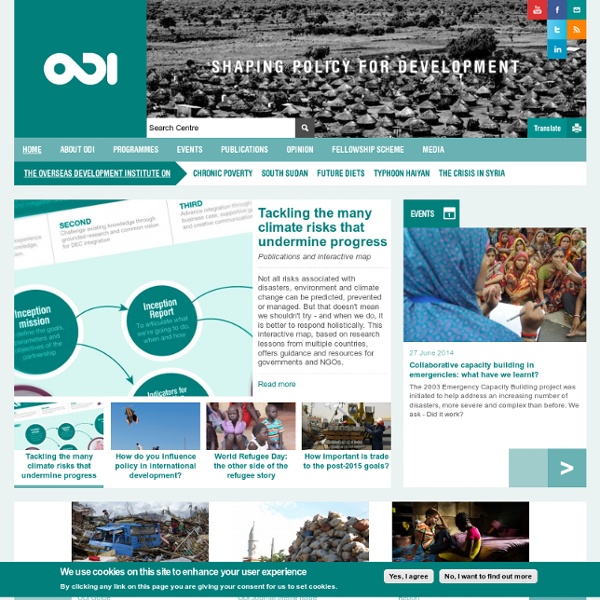



Peace Research Institute Oslo (PRIO) Nutrition Security networks This is an overview of relevant international and national knowledge networks on nutrition security. The list includes international institutions, knowledge and research networks, civil society organizations and networks, and public-private partnerships. It is a preliminary list which will be adapted when relevant. Please note that this is an initial list of knowledge networks on nutrition, including the key international institutions as knowledge hubs and standard setting bodies in the field of nutrition. The Food & Business Knowledge Platform will collaborate more closely with some of these networks. Ag2Nut Community A knowledge gateway in the area of food security and nutrition, which includes a list serve for interested experts (working via subscriptions), the archives of which are also accessible online for subscribers. Amsterdam Initiative against Malnutrition (AIM) CGIAR – Research programme on Agriculture for Nutrition and Health Consumers International HarvestPlus Plan International
Welcome — Refugee Studies Centre MAL-ED: A Global Network for the Study of Malnutrition and Enteric Diseases | Foundation for the National Institutes of Health Poor nutrition is linked to more than half of child deaths worldwide and to acute and chronic morbidity in children living in the developing world. The MAL-ED, (pronounced mal a dee), program studies the relationship between malnutrition and intestinal infections and the consequences of these conditions on various aspects of child development. It is a five-year, multi-site project administered by the Foundation for the NIH and the Fogarty International Center and is supported by a grant from the Bill & Melinda Gates Foundation of approximately $30 million. Malnutrition and diarrheal diseases are linked in a complex, vicious cycle: under-nutrition contributes to the severity of disease caused by intestinal infections, and infection, in turn, affects the gut’s capacity to absorb nutrients, thus contributing to further malnutrition. -Roger I.
Videos Hans Rosling explains a very common misunderstanding about the world: That saving the poor children leads to overpopulation. Not only is it not right, it’s the other way around! The world might not be as bad as you might believe! “Don’t Panic” is a one-hour long documentary produced by Wingspan Productions and Read more … Hans Rosling is debunking the River of Myths about the developing world. Instead of studying history one year at the university, you can watch this video for less than five minutes. Explaining the global vaccination programs is NOT a party-killer! Is there a relation between religion, sex and the number of babies per woman? What was the greatest invention of the industrial revolution? Hans Rosling uses Gapminder bubbles in CNN Global Public Square to show US converge with other countries. A one-hour documentary broadcast by BBC, where Hans Rosling says there’s nothing boring about stats, and then goes on to prove it. TED-talk at the US State Department. The urban challenge.
International Cooperation - Research & Innovation Science counsellor in Brazil Piero VENTURIScience Counsellor in Brazil and Latin America The relationship in research and innovation between the EU and its Member States and Latin America has grown over the last years. The European Union already has formal Science and Technology Cooperation Agreements with Argentina, Brazil, Chile, and Mexico. The region is rich in culture and biodiversity and is looking forward to cooperating with the EU in the fields of Science, Technology and Innovation in order to achieve sustainable development, promote social inclusion, and face global challenges. The new research and Innovation Programme, Horizon 2020, is seen as a great opportunity to strengthen cooperation and achieve these goals. The high level of Brazilian participation in FP7, one of the highest among non-EU countries, illustrates how the countries of the region are taking advantage of these opportunities. More information:
ética en la investigación La amplia y diversa actividad de investigación realizada en el CSIC se desarrolla en un entorno social en el que las consideraciones éticas, y en especial las bioéticas, tienen una importancia creciente. Ello ha generado la aparición de una legislación que regula cuestiones que afectan al trabajo cotidiano de los grupos de investigación y tiene implicaciones relevantes en la política de gestión, inversión y recursos humanos de la Institución. Al mismo tiempo, la madurez de la sociedad española, en línea con su clara vocación europeísta, provoca en la opinión pública intensos debates y planteamientos relacionados con dilemas ideológicos y la emergencia de nuevas opciones tecnológicas derivadas de la actividad investigadora. Comité de Ética del CSIC El CSIC cuenta con un Comité de Ética, de carácter consultivo y permanente, que se encarga de reflexionar, emitir informes y formular recomendaciones sobre los principios éticos y deontológicos relativos a la actividad investigadora. Bioética